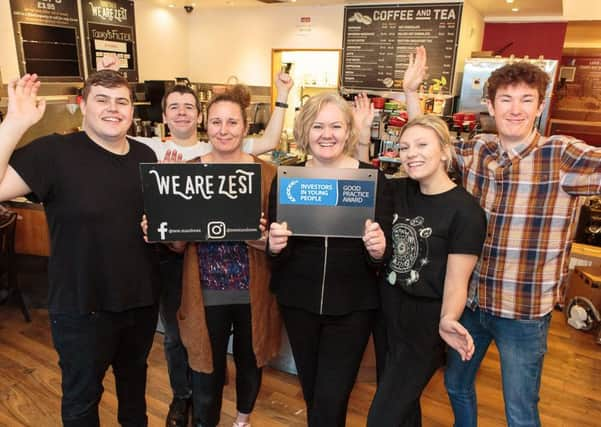Comment: Hiring staff with additional needs is good for business


It was recently reported that analysis of the Scottish Government Pupil Census showed the number of pupils with additional support needs for issues such as mental health, communication and Autism Spectrum Disorder (ASD) had risen between 2012 and 2018 by as much as 293 per cent for different categories of support need.
But the funding to support these pupils, as well as the numbers of specialist teachers to help them, had fallen.
Advertisement
Hide AdAdvertisement
Hide AdSo employers will increasingly need to be ready to support these young people when the time comes for them to enter the workforce.
As a social enterprise, Zest has been working for eight years to help people who need a little extra support to get into and maintain meaningful employment. Many of our permanently-employed paid team members have additional support needs ranging from mental health issues like anxiety, depression and bipolar disorder to learning difficulties and ASD.
Without our help they would typically go on to a life spent doing voluntary or very low-skilled work and not achieve their full personal potential or contribution to society or the economy.
We’re always delighted to see them flourish and grow with our help. One of our staff living on the autism spectrum completed a second Modern Apprenticeship thanks to our support and now works with us in a supervisory role. Successes like his have helped us win awards.
So why aren’t other small and medium-sized enterprises (SMEs) doing the same? The common misconceptions I hear are “supporting them will be too much work”, “I don’t have the skills to properly support someone”, or “I’m too busy”.
Mostly, I believe that managers at SMEs just lack the confidence and don’t want to get it wrong for the person. Sometimes though it’s a case of navel-gazing with an eye on their bottom line.
Larger employers have more resources to allow them to be more inclusive in their recruiting and employment practices. So how do SMEs become more socially responsible and get more involved with helping people?
The good news is – it isn’t as hard as they think. Don’t have the skills? Start with offering work placements (even if these are just a few hours a week). Ask the person what will work for them. Review and monitor what’s getting results and what doesn’t work for that person – there’s no one best practice because everyone’s different. Even helping one person is better than doing nothing.
Advertisement
Hide AdAdvertisement
Hide AdWhat do we do at Zest that’s so special? Actually, it’s not rocket science!
I often notice a common thread with our new employees and those with additional support needs undertaking work placements is a lack of confidence in themselves and their ability. So our team learn simple coaching techniques such as breaking tasks into small chunks and practice until that skill is learned, then build from there.
Encouragement goes a long way. Social skills, including listening, body language, self-awareness and how to work with others is something taken for granted by many, but it can be extremely difficult if you are living with ASD, depression or anxiety.
We are lucky in some ways. Most of our customers are regulars, so they see the team every day, understand what we do and get to see the team grow and develop. It gets more difficult with tourists, day-trippers and first-time visitors.
Although there’s signage around the café, some customers still struggle to appreciate that eye contact (a basic of good customer service) is one of the first things to go when a member of our team is having a difficult day.
Someone living with ASD may come across as disinterested as a result. Once it’s explained, most customers appreciate the effort put in by the team and see the benefits of how we work.
The benefits are not just for the individual being supported. For me, it’s a no-brainer from a business point of view – if you invest in your people and support them, you gain a loyal, engaged team. Staff turnover is reduced, which in turn saves you recruiting and training costs, as well as lost time while new staff settle in.
As a result of what we do, I have an amazing team of people constantly striving to be the best they can be. Around 75 per cent of them have additional support needs. Do most customers notice? No, because they work as a team and support each other.
Advertisement
Hide AdAdvertisement
Hide AdWe’re fortunate Fife Council is investing in its additional support needs team – North-East Fife now has two staff for this instead of one. Other councils would be wise to follow that lead.
And SMEs need to see the benefits of supporting people with additional support needs, to them, their firms and the economy.